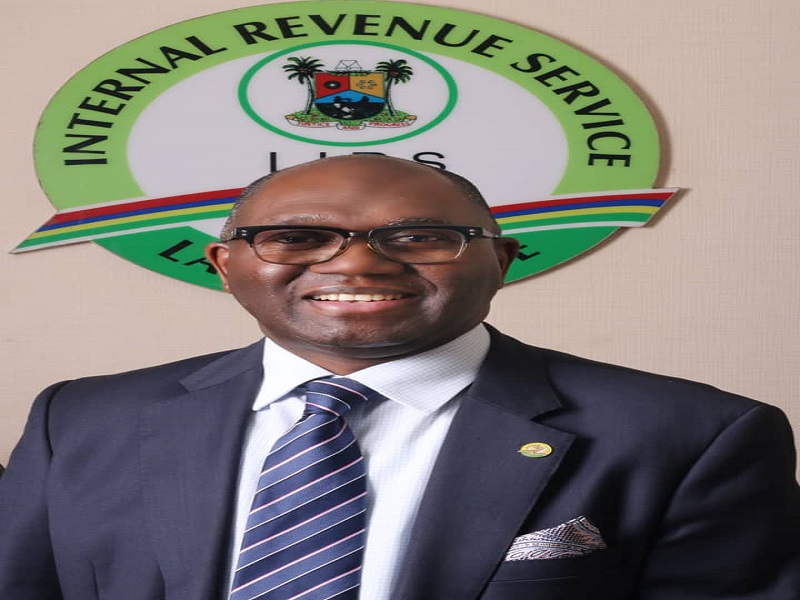News
Enabling Environment for Nigeria Content Development in the ICT Sector (3)
All these initiatives of Zinox involves much expenditure of resources, but the most saddening thing is that we are not encouraged by people defaulting after the initial deposit.
Marketing
Credit Policy
Infrastructure
: These have already been highlighted earlier, but permit me to share some experience. Freighting is an essential part of goods distribution and contributes to marketing. : Nigerians are yet to come to terms with credit purchase. The Central Bank of Nigeria is coming up with many policies to encourage the use of credit cards. The unfortunate thing is that even in this early stage many people are already defaulting in meeting their payment obligations. : Pricing of our goods is affected by the volatility of the foreign exchange. So prices cannot be maintained.
·
In November 2007, Zinox lost a whole truck conveying goods to Yola through fire. This incident is avoidable where the roads in order.
·
e. Purchasing Power
f. Local Content
g. Power
h. Discrimination against Nigerian made Goods
i. Bulk Purchasers
j. Security
: The agencies saddled with security of lives and properties in the country appear helpless to the prevailing state of insecurity in the country. : People saddled with bulk purchase of products for their organisations prefer buying from abroad (even where local and equally good substitutes are available), thereby depleting our foreign currency because of the kick back they get in hard currency. : Nigerian psyche has been steeped in the notion that foreign products are preferable even when there alternative high quality and cheaper local products. Even the government officials for some selfish or pecuniary reason also think this way. : Power generation, transmission and distribution in Nigeria right now are tottering in miserable obscurity or virtually non-existent. There is no need flogging a dying horse. For solution we should look at cost effective form of generation – nuclear energy. : The strangle hold the foreign companies have on the upstream sector of the oil industry and the profit they are scooping out of this country, is not making them develop the downstream sector. And most local investors do not have the capacity to go into the sector. Thus certain products from petrochemical plants that would have impacted the development of local content are still being imported. In the ICT industry, only cardboard cartons are produced locally. : The amount of disposable income available to majority of Nigerians is so low due to wide spread unemployment and poverty. This affects the ownership of this all important ICT tool.What role can government and other relevant agencies play?
Most of these factors that negatively impact industries are within the purview of government to remedy. Having said that, we believe that Government needs to:
a. Improve policy, legal, and regulatory frameworks;
b. Build institutional capacity across sectors and at various levels;
c. Seek out and respond to industry needs and preferences;
d. Establish and maintain a range of oversight, accountability, and feedback mechanisms; and
e. Mobilize and allocate public resources and investments.
Conclusions and Recommendations
We want to conclude that the ICT industry in its present embryo stage needs government partnership. Partnership between government and the private sector engenders trust. Industries have recently seen a significant increase in various forms of partnering. The intent of these relationships is to improve competitive advantage through collaboration and the best use of talents, working toward a common goal. This commitment forms the foundation for an environment of trust and cooperation that benefits everyone. The Japanese model supervised by the Ministry of International Trade immediately after World War II wrought the economic miracle that catapulted Japan into one of the most industrialised countries in the world today. Government should have a look at how that model can be adapted to suit our environment. We are not asking to be spoon fed, we only want a level playing field to enable us compete.
Based on the foregoing, we would like to see the following recommendations implemented.
1. Policy consistency
2. Pioneer status incentives
3. Investment in infrastructure provision and maintenance
4. Human capital development vis a vis empowering educational institutions to be ambient to current global trends
5. Long term Capital provision at rates that compete with international financial institutions
6. Welfare of citizens including social safety net Legislation against dumping
Concluded
News
Stanley Amandi, Nollywood Actor Arrested over Alleged Coup Plot against Tinubu

Stanley Amandi, veteran Nollywood actor and filmmaker, has been arrested by the Nigerian military over his alleged role in a foiled coup plot to overthrow President Bola Tinubu’s government, according to an exclusive report by Premium Times.

Stanley Amandi, Nollywood Actor
The filmmaker, also a former chairman of the Actors Guild of Nigeria (AGN) Enugu State chapter, was reportedly detained in September 2025 alongside several military officers accused of planning a violent overthrow, including potential assassinations of top officials, according to the newspaper’s sources.
Reports indicated that the coup plotters planned to wholesale assassination of top government officials including President Tinubu, Vice President Kashim Shettima, Senate President Godswill Akpabio, and Speaker of the House of Representatives Tajudeen Abbas, among others.
On Monday, the Defence Headquarters confirmed the plan to illegally oust the Tinubu administration, saying the indicted officers will be arraigned before military judicial panels.
In its statement, the Defence Headquarters said the investigation has been completed and forwarded to “appropriate superior authority in line with extant regulations.”
According to the military, the investigation was “comprehensive” and conducted in line with established procedures, examining “all circumstances surrounding the conduct of the affected personnel.”
The military disclosed that the findings identified “a number of the officers with allegations of plotting to overthrow the government,” describing such conduct as “inconsistent with the ethics, values and professional standards required of members of the Armed Forces of Nigeria.”
Mr Amandi has featured in many Nollywood movies and is known for his work as an actor, production manager and director.
His notable works include “The Album,” where he served as director; “Tiger King,” where he also served as director and produced in 2008; “Cornerstone,” produced in 2019; and “Once Upon a Dream,” in which he appeared as an actor in 2024.
Mr Amandi’s last Instagram post was on 19 September 2025, shortly before his arrest.
News
Firms Commit to Boost African Robotics Market

AfricAI and Micropolis Robotics have signed a multi-year exclusive distribution and deployment agreement, which marks one of the continent’s most significant robotics market entries.

Micropolis AI Robotics is a United Arab Emirates-based robotics manufacturer operating in autonomous systems, while AfricAI is a company building practical, revenue-driven artificial intelligence (AI) systems for African businesses, governments, and global partners operating in emerging markets.
According to the agreement, Micropolis Robotics named AfricAI as its exclusive continental partner, prohibiting direct sales, alternative distributors, and third-party agents from operating in the territory.
The partnership establishes AfricAI as the primary execution, localisation, and go-to-market platform for intelligent robotics in Africa’s industrial, security, logistics, and infrastructure sectors.
AfricAI said this exclusive mandate positions the company as the gateway for advanced autonomous systems entering African markets, ensuring regulatory compliance, local capacity building, and sovereign control over deployment frameworks.
The partnership, according to the two parties, moves beyond software- based AI into the realm of physical AI — intelligent machines capable of operating in complex, real-world African environments.
“This is not a collaboration, it is a market-shaping mandate,” said Fareed Aljawhari, CEO of Micropolis Robotics. “AfricAI now represents the exclusive gateway through which Micropolis technologies enter Africa. Their sovereign AI vision, operational reach, and regulatory fluency make them the only partner capable of executing at a continental scale.
Furthermore, the agreement enables AfricAI to integrate Micropolis’ autonomous robotics systems with AfricAI’s sovereign AI stack, resulting in AI-powered security and surveillance platforms, robotics-enabled logistics and port operations, industrial automation, smart infrastructure, and municipal robotics tailored to African operating conditions.
Initial deployments will commence in security, smart infrastructure, and logistics, with phased expansion across multiple African states as part of AfricAI’s broader continental AI, data, and intelligent infrastructure strategy.
The agreement also includes long-term performance-linked expansion rights, automatic renewals, and a defined localisation framework to support robotics deployment, workforce training, and skills transfer across Africa.
Prince Malik Ado-Ibrahim, executive chairman of AfricAI, said: “Africa does not need imported automation — it needs sovereign, context-aware intelligent systems. This exclusive mandate allows AfricAI to industrialise robotics deployment at scale while retaining control, compliance, and value creation on the continent.”
News
Subair: LIRS Won’t Raid Accounts – Unless You’ve Lost Every Court Battle

Lagos State Internal Revenue Service Executive Chairman Ayodele Subair Tuesday demolished online panic over alleged bank account raids, insisting the agency’s “Power of Substitution” targets only hardcore tax dodgers who have exhausted every appeal from tribunals to the Supreme Court over half a decade of disputes.

Ayodele Subair
Subair, speaking on Arise TV, shredded viral fears that LIRS would swoop on residents’ savings without warning, clarifying the mechanism under Section 60 of the Nigeria Tax Administration Act 2025 kicks in solely after assessments spark objections, reconciliations, demand notices, and a gruelling courtroom odyssey through High Court, Court of Appeal, and apex rulings.
The LIRS weekend notice had ignited fury by announcing enforcement via third parties – banks, employers, tenants, debtors – to claw back unpaid Personal Income Tax, Capital Gains Tax, Stamp Duties, and Withholding Tax from chronic defaulters holding funds or owing money to them, whether due now or accruing later.
Subair likened the process to a “long timeframe, not less than five years,” where recalcitrant bigwigs who stonewall every step become fair game, with LIRS directing agents like customers or partners to divert payments straight to the taxman in lawful settlement.
Far from arbitrary grabs, the chairman stressed it’s a final resort for “entirely recalcitrant” holdouts who ignore Notice of Refusal to Amend (NORA) and every olive branch, ensuring Lagos coffers snag rightful revenue fuelling the state’s bulging budget without shotgun raids on compliant payers.
As social media buzzes with defiance – “They can’t touch my account!” – Subair’s blueprint spotlights Nigeria’s tax evasion scourge starving subnationals of trillions yearly, with Lagos alone chasing billions in arrears amid federal revenue wars and economic headwinds squeezing the commercial capital’s 25 million souls.
Industry voices nod to the legality but plead for digital dashboards tracking disputes transparently, warning overzealous recovery could spook investors in Africa’s fintech and startup mecca already reeling from naira nosedives and grid glitches.
With LIRS poised to unleash the hammer on vetted violators, Subair’s clarion call aims to separate myth from muscle, bolstering Lagos’ IGR juggernaut that hit N815 billion last year while daring defaulters to test the full judicial gauntlet before crying foul.

 Telecom1 day ago
Telecom1 day agoPolice Bust ₦7.7bn Telecom Hack Gang, Seize 400 Laptops in Massive Fraud Swoop

 E-Financial2 days ago
E-Financial2 days agoPayPal Goes Live in Nigeria through Paga

 Broadcasting2 days ago
Broadcasting2 days agoNITDA, NBC Explore Strategic Collaboration on Digital Transformation, Media Regulation

 General News1 day ago
General News1 day agoNaira Smashes Through ₦1,400 Barrier in Official FX Rally

 General News1 day ago
General News1 day agoNCC Slaps ₦250,000 Fee on Trial Licences to Spur Telecom Innovation

 General News2 days ago
General News2 days agoFacebook Powers Connection, Creativity at African Creators Summit 2026

 E-Business2 days ago
E-Business2 days agoGold Hits Record $5,110/Ounce Amid Trump Tariff Threats, Geopolitical Fears

 Telecom2 days ago
Telecom2 days agoTikTok, Instagram Blamed in US Youth Suicide Lawsuit















